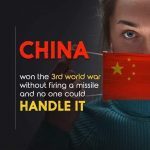Who Am I?
✔I’m not impressed by money, social status or job title.I’m impressed by the way someone treats other human beings.✅ខ្ញុំមិនអោយតំលៃមនុស្សដោយទឹកប្រាក់ ដោយឋានៈបុណ្យសក្តិក្នុងសង្គម និងតំណែងការងារទេ ខ្ញុំផ្តល់តំលៃតែលើមនុស្សណាម្នាក់ដែលយកចិត្តទុកដាក់គុណតំលៃមនុស្សជាតិដូចគ្នា។ #WhoAmI #ខ្ញុំគឺជានរណា When you have the right MINDSETThe Rest is Peace of CakeMINDSET is Everything. នៅពេលអ្នកមានផ្តត់គំនិតល្អត្រឹមត្រូវអ្វីសល់ពីនេះគឺស្រួលដូចបកចេកផ្តត់គំនិតគឺអ្វីៗគ្រប់យ៉ាង។ #ខ្ញុំគឺជានរណា #WhoAmI ✅Push harder than yesturdayif you want a different tomorrow. ✅សូមខំប្រឹងជាងម្សិលមិញប្រសិនបើអ្នកចង់បានការផ្លាស់ប្តូរនៅថ្ងៃស្អែក។ #ខ្ញុំគឺជានរណា #WhoAmI ✅Sometimes you need

